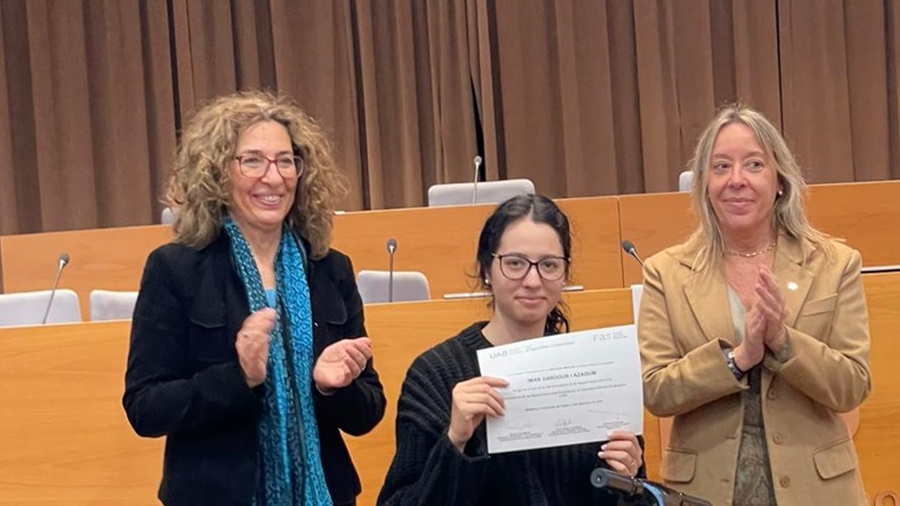The UAB confers eight Impuls grants to students with disabilities
Today, the UAB conferred eight Impuls grants to students at the 7th institutional event to commemorate International Day of Persons with Disabilities. These grants are given to help students with disabilities be able to carry out their university studies in equal opportunities. In this year's call, four women and four men have received a grant, students from the School of Engineering and the faculties of Communication Studies, Education, Political Science and Sociology, and Translation and Interpreting.

According to Vice-Rector for Students and Employability Anabel Galán, these grants are not only an economic support but also “a recognition of the courage” of students who must make “not only an academic effort but also a personal effort to overcome many obstacles”. The vice-rector said that the UAB aims to be “a reflection of the society we want”, which she described as “inclusive, respectful and full of opportunities for all”.
Galán and the secretary general of the UAB, Esther Zapater, who led the event, thanked both “the example” set by the students receiving the grants and the work done by the services and members of the university community involved in equality policies: the new Service for Equality and Diversity, the PIUNE, the UAP and the heads of the dean's offices and management of the different centres. Zapater also called on the entire UAB community to get involved to achieve a “more inclusive and diverse” university.
The institutional day also included a round table with the participation of Sandra Camacho, lecturer of civil law at the UAB, and Elisabet Guillemat, coordinator of Social Impact of Knowledge of the Department of Research and Universities of the Government of Catalonia. Camacho spoke about the regulatory framework of disability, highlighting the “paradigm shift” involved in adapting Spanish legislation to the United Nations Convention on the Rights of Persons with Disabilities, and moving from a health-based approach to a social one to recognise the “legal capacity” and “equal opportunities” of people with disabilities.
Elisabet Guillemat explained the content and drafting process of the Plan for Inclusion and Diversity in Catalan Universities (PIDUC), which aims to establish a “framework of reference” for the university system. She also highlighted the creation of the UNINCAT network, which “will help to deploy the plan”. As for the work carried out, Guillemat described as “a good example that needs to be transferred to other universities” the protocol of curricular adjustments for students with specific educational support needs approved this year by the UAB.
The UAB, with Sustainable Development Goals
Reduced inequalities
Quality education